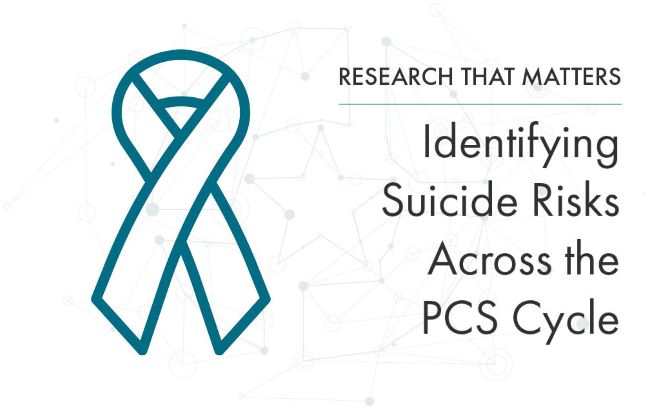5 October 2022
Geneva Collaborates with Military Suicide Research Consortium to Address Suicide Risks Across PCS Cycle
More than 400,000 service members annually make a permanent change of station (PCS). PCS is a part of military life and unlike temporary duty assignments, PCS orders are a longer-term assignment, generally two to four years. For many families, this means starting over under stress. Stress that seems to have no end can affect anyone, with some service members at a greater risk for suicide than others.
Principal investigator CPT(P) Thomas Nassif, PhD is leading a study under the Military Suicide Research Consortium (MSRC) to help soldiers navigate relocation stress by identifying suicide-related risk factors. CPT (Dr.) Nassif is the Chief, Sleep Research Center at Walter Reed Army Institute of Research (WRAIR). Geneva serves as the contracting organization for the study’s research team at WRAIR and is a subrecipient of an award under Florida State University led by Principal Investigator Thomas Joiner, PhD. The period of performance for the award is 7/1/2020 to 3/30/2023
Suicide prevention in the military is a top priority. In response to the high rates of suicide in the military, the MSRC was established and funded in 2010. MSRC is part of an ongoing strategy to align Department of Defense and civilian efforts to implement a multidisciplinary research approach to suicide prevention.
Today, the MSRC produces highly valuable and mission-relevant deliverables around new scientific knowledge on suicidal behavior in the military. Researchers are building on knowledge generated by the first set of MSRC studies to train future leaders and maintain situational readiness.
CPT (Dr.) Nassif and his research team aim to identify and mitigate potential risk factors for suicide-related behaviors associated with relocation across the PCS cycle. Through the careful analysis of interviews and cross-sectional surveys, the research team aims to generate recommendations at the individual, unit, and organizational level to identify soldiers at greatest risk of suicide-related behaviors associated with relocation.
The military can throw curve balls, forcing military families to move at a moment’s notice or during difficult times of the year. This research seeks to identify suicide -related risk factors to help soldiers navigate relocation stress which may help to decrease suicide.
If you are struggling with suicidal thoughts, or know someone who is, help is available. Call the Veterans and Military Crisis Line at 800-273-8255 and Press 1 for free, confidential help. Hope is a reality. Help is available.
This award was funded by the Army Medical Research and Material Command under award number W81XWH-16-2-0003-P00021.
Disclaimer: The views expressed do not reflect the official policy of the Army, the Department of Defense, or the U.S. Government.

HIGHLIGHTS
- In response to the high rates of suicide in the military, the Military Suicide Research Consortium (MSRC) was established and funded in 2010.
- Principal investigator CPT(P) Thomas Nassif, PhD is leading a study under the MSRC to help soldiers navigate relocation stress by identifying suicide-related risk factors.
- Geneva serves as the contracting organization for the study’s research team at Walter Reed Army Institute of Research and is a subrecipient of an award under Florida State University


